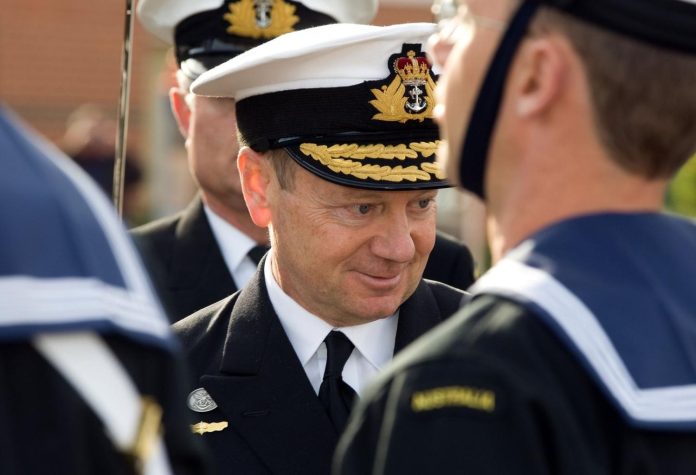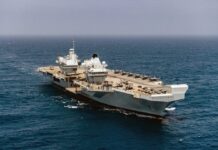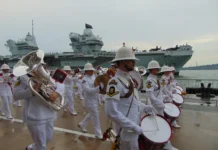
Losing James Goldrick’s profound wisdom the same week as Australia announced its ambitious plans for nuclear-powered submarines was a painful irony for the naval community and a significant loss for the nation. (Lowy Institute’s Interpreter)
When Goldrick wrote on defence matters – as he did many times in The Interpreter as a long-time nonresident fellow at the Lowy Institute – his restrained prose rang with both the authenticity of his nearly four decades’ service to the Royal Australian Navy and the authority of his many acclaimed books on naval history.
But in his later years, Goldrick was equally interested in fostering others to better understand the maritime domain. In the first of many discussions with me – always over coffee at Poppy’s at the Australian War Memorial in Canberra – Goldrick shared his belief that “retired admirals were on a good wicket and should always make the time to help others understand navies”. As tributes poured out on social media during the weekend, it became apparent how many people across the globe cherished his mentorship.
To sit in conversation with Goldrick was to be drawn into a world where navies, oceans, trade, law and history all interacted with exquisite subtlety and with the highest stakes. He could expound on topics from naval cuisine and arcane engineering and navigation issues to the political economy of empires long past, all delivered with sparkling-eyed enthusiasm. And yet one never lost awareness of the fact that he had commanded great ships in dangerous waters and held the lives of his crew and adversaries in his hands. (Despite the nickname Dumbledore following him around in recent years, to me he was always more like the urbane and courageous Jean-Luc Picard from Star Trek.)
During a recent visit to the United States, I was told by an eminent naval expert that “you may as well go home and just ask James; he knows more about the US Navy than we do”. Goldrick was also something of a Twitter curmudgeon, borne of an encyclopaedic mind and a keen eye for detail. Woe betide anyone misnaming a ship, its class, or mischaracterising what it was doing. James would promptly correct them.
His humility was such that he could direct you to a relevant chapter of a book without bothering to mention his own chapter in the same volume. It was commonplace for people to mention that Goldrick remembered their names sometimes years after having briefly encountered them. (It was a skill he admitted to simply working very hard at.) Sailors told stories about his efforts to put them at ease, including an absurd tale of Goldrick water-skiing behind a patrol boat during his Border Protection command years.
He wrote some advice before I went to sea for the first time with the Australian Navy last year as an “academic searider”, signing off his missive as “the Ancient Mariner”.
“As to seagoing, my main advice is to relax and enjoy yourself. People will be really nice to you. Remember that every job in a ship matters and there are LOTS of very different jobs to do, all the time.
“Remember, you can put a boat on a ship but not a ship on a boat; submarines – which are always boats! – being the exception.
“Watch your head and always keep one hand for the ship and one for yourself. Hang on, in other words, but not for grim death.”Many across the world will be re-living old conversations, re-reading old correspondence, and re-engaging with Goldrick’s canon in the months and years to come, and thus his legacy will live on. Per naval tradition, we wish him fair winds and following seas on his final passage.
Goldrick died on 17 March 2023 in Canberra after a long battle with lymphoma and then leukemia. Born in 1958, he joined the Royal Australian Navy in 1974 and retired in 2012 as a two-star Rear Admiral. He commanded HMAS Cessnock and Sydney (twice), the multinational maritime interception force in the Persian Gulf and the Australian Defence Force Academy. He led Australia’s Border Protection Command and later commanded the Australian Defence College. He was winner of the prestigious US Hattendorf Prize for Naval History in 2021. James is survived by his wife Ruth, sons Owen and Edmund and sister Frances.
With special thanks to Peter Jones and the Australian Naval Institute and the further obituary here.



